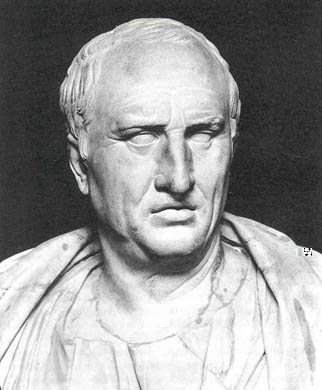If we want to compare ancient cultures to our culture today the first step is to see exactly how similar these cultures are. Afterall, if they hold no parallels then then this endeavor can prove to be very difficult. The first step will be to examine how the ancients viewed occupying and controlling foreign lands using both primary sources from the time and modern discussion on the issue. Then in the end, we can use this information to compare the cultures to ours today and to examine how similar they are.
The first telling insight into how Rome felt about occupying and conquering foreign lands can be seen in the creation of the triumph, a type of ancient parade where the newly defeated people would be led through Rome so all the citizens could see the spoils of war. Mary Beard’s The Roman Triumh paints a vivid picture of exactly what a triumph would entail. She details just how violent these triumphs could be, with the captives being put to death at the end. She goes on to say how this was an exercise by the Roman empire to show its clout. It is difficult to argue with that point; the descriptions of the triumphs by Pliny are nothing short of amazing in terms of the spoils. The main point of Beard’s writing is to show the importance of the triumph to the Roman leaders.
The next is an examination of live burials performed under Roman Imperialism. This article interprets human sacrifice of Gauls and Greeks in Rome as showing how little we know of the psychological effects of continuous warfare on the Romans. The author argues for the connection between warfare and religion that does not support the idea of defensive Roman imperialism. That is that Rome had to go to war to protect her own interests.
The final source is based around the ideas of the Roman military and what values they held. This is important to examine because these were the people often in charge of occupying the Roman held lands. Dr. Hanson’s book The Father of Us All: War and History, Ancient and Modern, examines the similarities of the Roman military to that of ours today. What he finds is quite striking. He claims that the strength of the these militaries comes from the egalitarian nature from which they are founded. He also looks at how Rome and America today use their military to control the foreign people and lands.
We can also examine how Roman rulers controlled conqeured lands by examining ancient texts. The first of these is Caeser’s Gallic Wars, a personal account on how he counquered the land of Gaul. The book outlines basic princilples of how Rome conquered and ruled. If the subjects under Roman law would pay taxes and support the Imperial cult then for the most part they would not be bothered. It was only in the case when Rome was acquiring new land or controlling an uprising was this not true. Which begs the question what was the reason for the uprising in the first place.
One such instance is characterized by Josephus’ account of the Jewish War. Josephus was himself a Jew who believed in the compatibility of the Jewish custom and Roman rule. (wish I had more time to write more)
This image shows how pervasive violence and the idea of conquering was to the common Roman. The picture is from a Roman general's sarcophagus and it depicts a cavalry battle between the Romans and barbarians. The average Roman was no stranger to violence. Most Romans I would argue were quite alright with conquering and controlling foreign lands.
The question now is can we compare ancient Roman imperialism to our culture today and just how relevant is it. The idea of American imperialism does not come as surprise to some. If we examine the principles of imperialism but disregard the means, then the two cultures are strikingly similar. The United States would most likely not conquer a nation for the outright control of that area. But if we examine the spread of American culture throughout the world, striking similarities can be drawn between the impacts of both the Roman and American cultures. In this way, we ancient Rome and our modern nation are very similar.
























